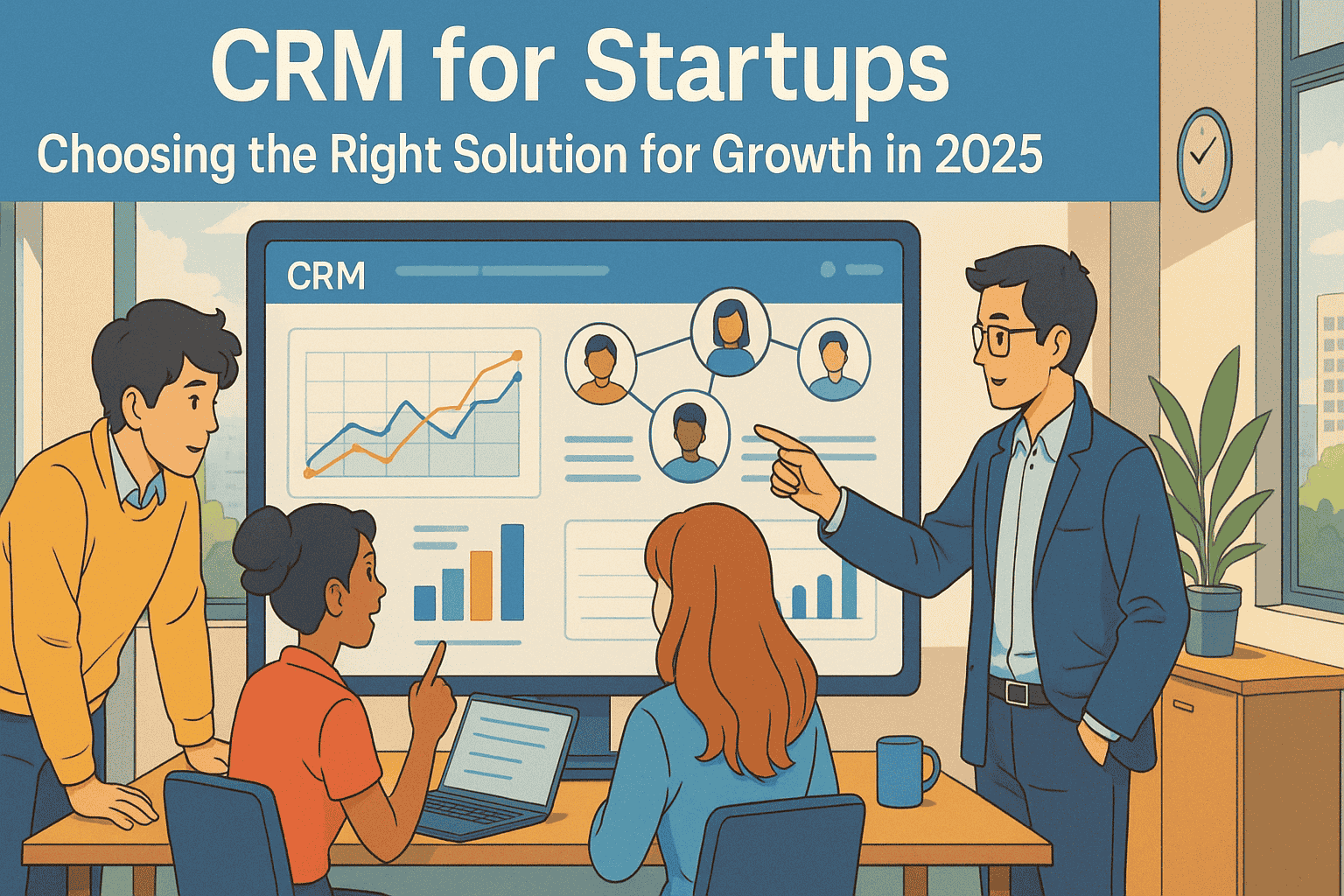CRM for Startups: Choosing the Right Solution for Growth in 2025
Customer relationships are the heart of every startup’s journey. As competition grows across every industry, implementing a CRM for startup companies is not just beneficial—it’s essential. Whether you’re a seed-stage SaaS company or a scaling B2B startup, a CRM system can streamline communication, automate workflows, and drive sales efficiency.
This guide explores the best CRM for startups, including tools, features, pricing, and practical advice to help founders and teams make smarter software decisions.
What Is CRM and Why Startups Need It
CRM stands for Customer Relationship Management. It refers to software that helps businesses manage customer data, track sales pipelines, nurture leads, and build long-term relationships with clients.
Startups often operate with lean teams and aggressive growth targets. A dedicated CRM software for startup environments helps centralize customer information, reduce manual follow-up, and boost conversion rates. More importantly, it empowers small teams to behave like large, structured sales organizations.
Key Benefits of CRM for Startups
- Consolidates contact and lead information in one place
- Tracks every interaction with prospects and customers
- Helps automate email follow-ups, reminders, and sales sequences
- Provides pipeline visibility and sales forecasting
- Supports collaboration between marketing, sales, and customer success teams
CRM tools also offer reporting features, allowing startups to learn from metrics and optimize their strategies.
Common CRM Needs for Startups
Not all CRMs are built for early-stage companies. Startups require lightweight, affordable, and easy-to-use solutions. Some of the core needs include:
- Affordability: A cheap CRM for startups helps keep costs under control
- Flexibility: Integration with email, calendar, marketing, and helpdesk tools
- Scalability: Ability to grow with your team and customer base
- Simplicity: Minimal setup time and intuitive design
Best CRM Features for Startup Companies
When evaluating CRM systems for startups, prioritize the features that align with your goals:
Best CRM System for Startups (2025 Picks)
Here’s a look at some of the top-rated CRM platforms tailored to startups in 2025:
These solutions serve different needs, but all offer the essential capabilities of a CRM tool for startups without overloading you with enterprise-level complexity.
Cheap CRM for Startups: Budget-Friendly Options
While “free” often comes with limitations, some platforms offer strong capabilities at no or low cost for small teams. If you're in the early funding stage, these options may be a perfect fit:
- HubSpot CRM (Free Tier): Great for basic sales tracking and contact management
- Zoho Bigin: Simplified version of Zoho CRM built specifically for micro-businesses
- Agile CRM (Free Tier): Offers lead scoring, marketing automation, and deal tracking
- Bitrix24 (Free Tier): All-in-one platform with CRM, task management, and chat
Always consider long-term costs as your contact list and needs grow.
Best CRM Tool for Startups by Use Case
Not every startup is the same. Here’s a breakdown of recommendations based on business type:
CRM for Startup Companies: Implementation Tips
1. Define Your Sales Process
2. Import Your Contacts
3. Integrate Your Tools
4. Train Your Team
5. Automate Key Workflows
6. Monitor and Optimize
CRM Solutions for Startups: Features to Scale With You
- Role-based access control
- Advanced reporting dashboards
- Lead source attribution
- In-app calling or SMS
- Customizable APIs and developer tools
CRM Systems for Startups: Mistakes to Avoid
- Overbuying: Don’t pay for features you won’t use in the next 6–12 months
- Under-training: Low adoption rates often stem from poor onboarding
- Poor data hygiene: Dirty or duplicate data ruins your reports and automations
- Neglecting mobile: If your team works remotely, mobile CRM access is a must
- Not setting goals: Your CRM is a tool—not a strategy. Define what success looks like.
CRM and Startup Growth: Real-World Results
The Future of CRM for Startups
- Predictive lead scoring
- Conversational CRM via chatbots
- AI-written follow-ups and email responses
- Natural language queries for reports
- Enhanced mobile CRM apps









